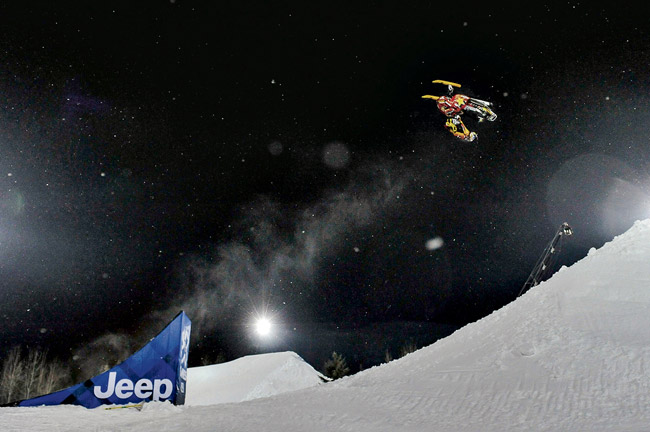Tragic Death Shouldn’t Kill Sport
Caleb Moore shouldn’t have died. Twenty-five is just too young.
Moore, a four time X Games medalist, was attempting a backflip during the snowmobile freestyle event at X Games Aspen when he under-rotated, digging the front skis of his 450-pound snowmobile into the hill and sending him flying down the course. He would eventually walk off under his own power and be taken to Aspen Valley Hospital with a concussion.
While there, doctors found bleeding around his heart and he was rushed into surgery. On Sunday, Jan. 27, four days after his initial crash, his family announced he had also suffered a brain injury.
Last Thursday he died, becoming the first athlete to be killed in the 18-year history of the games. Freeskiier Sarah Burke died a year earlier while training for the X Games.
In the immediate aftermath, ESPN, which owns and produces X Games, said it would conduct a thorough review into freestyle snowmobiling and adopt any appropriate changes.
Not surprisingly, the crash has spawned a wave of cautious commentary calling for the end of the event.
Tony Kornheiser on ESPN’s Pardon the Interruption said snowmo-bile freestyle should be banned. He’s not the first nor will he be the last to offer such a solution.
The sentiment is understandable and in no way reactionary, but ending the contest won’t bring Moore back nor will it make the action sport event safer.
As long as there are ways to go bigger, higher and faster, someone will be there to do it, record it, sell it and watch it. In that sense it is no different than the ski jump, bobsledding, downhill racing, motocross, auto racing and any other recreational ways of damaging one’s body. The X Games, by design and creation, are frightful and fascinating. That’s always been the appeal.
When the X Games came on the scene in 1995, the radical events were everything that we thought sport shouldn’t be. It was individualistic, showy, cocky, and the contests were just goofy interpretations of already-existing seasonal sports.
Most of us weren’t ready for it – that is, those over 30 who saw no need to expand on the already crowded sporting options. Thankfully, American youths weren’t listening.
X Games revitalized athletics by appealing to millions of youngsters who didn’t fit the mold into which we attempt to shove everyone. A snowboarder, skateboarder or BMX freestyler didn’t have to be 6-foot-4, ripped with neatly cropped hair to be successful. They just had to be who they were, often misunderstood, slightly antisocial, poorly dressed and incredibly driven to be the very best at their sport – even if no one was watching.
The Extreme Games in 1995, extreme wisely being dropped a year later in favor of just “X,” attracted 198,000 attendees. Winter X Games came two years later, and before anyone realized it was happening, the most over-controlled, over-sold, corporate, staid and corrupt contest in athletic history – the Olympic Games – had been invaded by the dregs of sporting society, led by a scrawny 5-foot, 8-inch, 150-pound blur of speed, body control and daring.
Sean White helped redefine what it meant to be an athlete. That his cohorts cared more about besting one another than collecting overvalued discs of semi-precious metal, made them all the more attractive. And yes, Lindsey Jacobellis was showing off in 2006 when she crashed after adding some kick style to the final jump in snowboard cross. She went from gold to silver and didn’t seem to care.
Let’s be clear. There is a lot that can be done to make the games safer. Some X Games disciplines are inherently dangerous for the simple reason that each year it takes bigger, riskier moves to satisfy the competitive nature of the participants and the audience. No better example is the skateboard big air that includes a 65-foot drop that propels skaters at speeds up to 40 mph across a 70-foot gap section and onto a 27-foot quarter pipe that can send them an additional 25 feet into the air.
A first step would be to set age restrictions on certain events. Athletes as young as 11 years old have competed in the skateboard big air. Other improvements could include mandatory medical tests before competitions and the lowering of heights and speeds in various contests. What ESPN shouldn’t do is cancel any of the events.
Moore needs to be mourned but his sport doesn’t need to be sacrificed.
No matter how frightening some of the contests appear, the X Games are safer than football, racing, boxing and many downhill Olympic events.
They’re also more fun.






